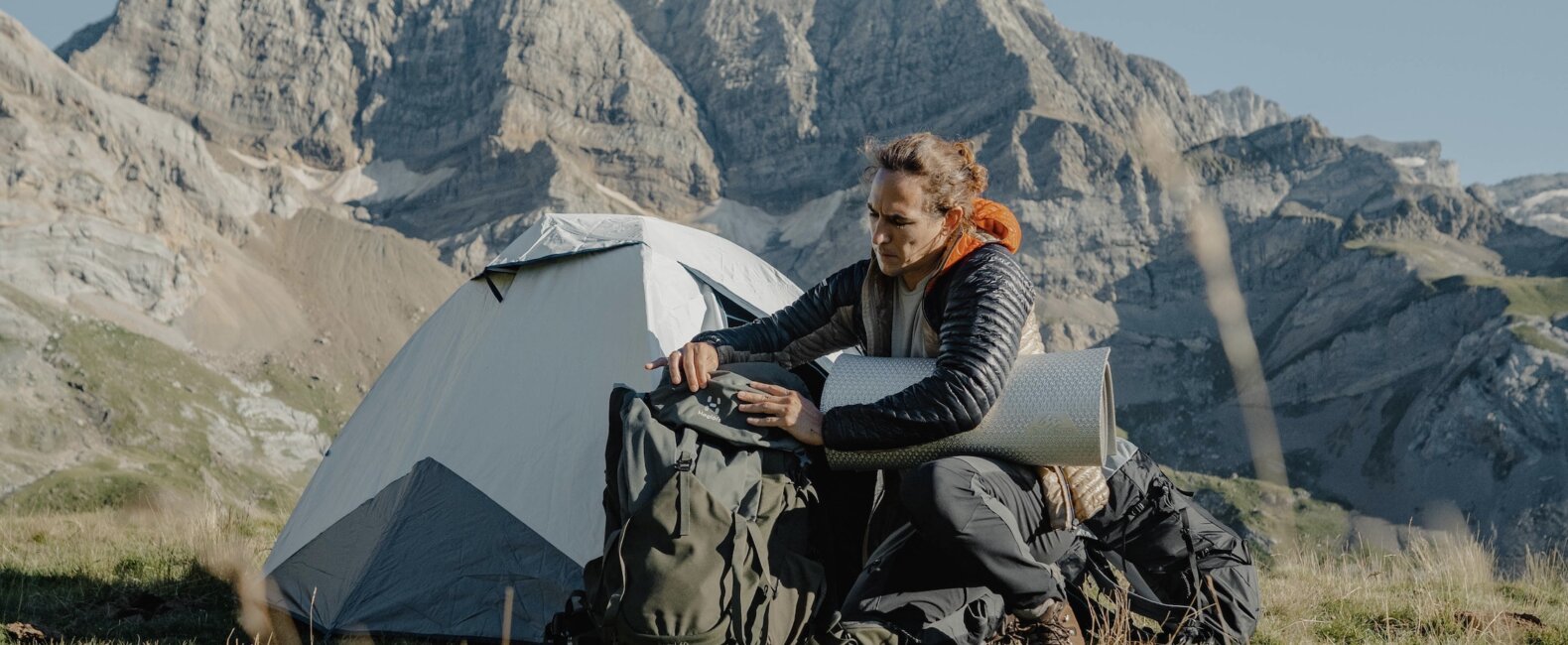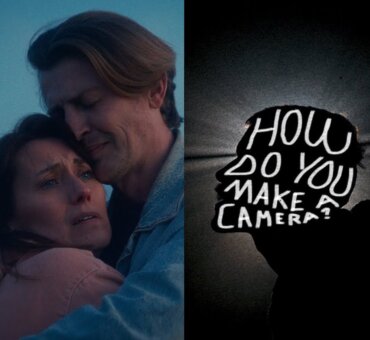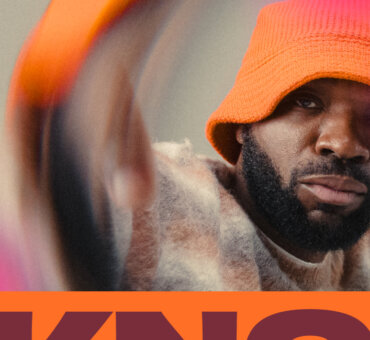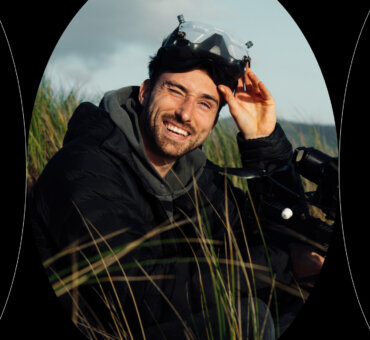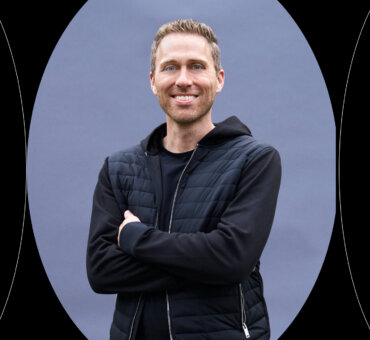When he’s not creating stunning branded content for Red Bull, Adobe, GoPro, insta360, and others, filmmaker Jake Rich is educating other creatives on his platform NotJustColour and sharing his passions with his global audience on YouTube. Read his interview below to learn what sparked his interest in filmmaking, his advice to new filmmakers, and why he trusts Musicbed for music to take his films to the next level.
Musicbed: What sparked your passion for filmmaking/storytelling?
Jake Richardson: My passion for filmmaking and storytelling was sparked by skateboarding. I was obsessed with board sports as a kid. In 10th grade, I was trying to film my friend’s skate tricks, so I borrowed my mum’s handy cam. I remember being fascinated by the features and effects that could be applied to the footage in post-production. Almost like, all of a sudden, I could control time. And I used to go to town with it-think horrific rainbow-coloured filters and the like. I was just wowed that a poorly performed skate trick could look like a well-performed one in one simple edit: just cut out the part of the video where the skater doesn’t land the flip. I had control of the performance, and it felt like magic. Add some rainbow colors and a trending emotional song, and you have yourself an angsty piece of art. As I entered my teens, you know, that classic coming-of-age story, and tried to make sense of the world around me, my passion for capturing moving images kept growing. I’m a curious person, and through film and stories, I’ve been able to better understand the world and, to a large extent, myself.
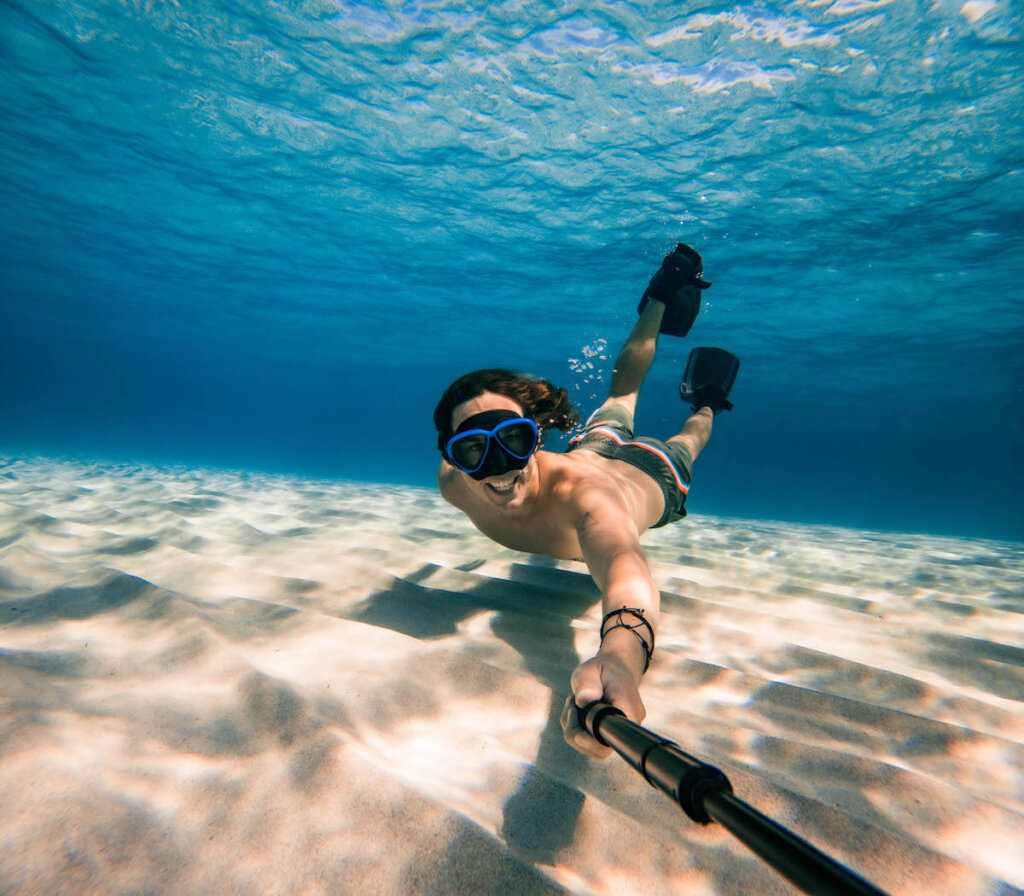
What keeps you motivated and creatively inspired?
I get a lot of satisfaction from teaching others, and I love witnessing my students’ success. But if I’m being honest, my motivation to create content is a constant roller-coaster. It’s part of having a creative mind, I think. Sometimes, I even feel like I’m creating content solely to please an algorithm rather than making genuine art. Some days I’m okay with this reality because I recognize that content creation, particularly from a business standpoint, seldom achieves the ideal balance between serving the audience or the algorithm and creating authentic art. Others, I get frustrated. Paradoxically, what most motivates me is to find that intersection between art and business; as much as I do feel constrained by specific trends or previous successes, I remind myself that numbers aren’t just numbers on social media; they’re actually people. Humans with feelings and emotions who grapple with similar themes and ultimately want to connect. I’m motivated to bring filmmaking to more people and inspire them to continue creating.
Creating is a form of healing, a way to deal with loss, celebrate joy, and better understand the world. Most of my commercial work is directed at helping others, teaching filmmaking or encouraging everyday heroes to better document their adventures and savor those precious moments shared with family and friends on their action camera. Personally, I’m inspired by other filmmakers, by the natural world, by music, and often by the mundane sh*t we each have to go through every day to be the best version of ourselves.
What makes a story visually appealing? What role does music play in storytelling?
I’m a big sucker for light. Light makes a story visually appealing. Whether you’re using a cinema camera or a smartphone, I always advise my students to start recording when the lighting is at its best. It’s the easiest way to enhance the visual quality of your work. I primarily work outside using natural light, so having more time on location has been the solution to ensuring we’ll get days with interesting weather. A sunny day, a pink morning sky, or some light rays underwater can make an action camera shot look incredible. Music plays a significant role in influencing my work. Whenever I am about to make a travel film, I usually look for music that can guide my decision-making process or even serve as the theme song for my trip. Music is usually the first thing I search for, even before pre-production or shooting.
What elements do you think are essential for crafting a compelling story?
Desire and conflict are essential elements when crafting a compelling story. If your story is a quest, effectively communicating your protagonist’s desire early on is critical to getting your audience on the bandwagon. If you let us know you’re off to find the best fries in Bangkok, we’ll likely stay for the rest of the adventure. Given that the desire is clearly communicated, we can join you in finding those fries. If you’re lucky, we might even stumble across a place that serves them with a generous portion of chicken salt.
Conflict is another element that is so important for crafting compelling stories. It can be communicated in many forms. Intrapersonal conflict is something I’m often most compelled by. For instance, I have a strong desire to create art, but sometimes it doesn’t sell. This raises the question of whether I should continue making art despite the lack of financial gain. We all have these daily interpersonal battles. The way we see the world is shaped by many facets. The time, place, geographical pocket, and privilege we were born into build our narratives. The human versus self story will forever be a muse.
How important is music in your work?
Music plays a crucial role in my work as it guides my decision-making as an editor and inspires me to start a project. Music is what will determine whether I gravitate towards a series, director, artist, or YouTube video. You could say music honestly rules my world.
What advice would you give other filmmakers/creators who are just starting their careers?
For filmmakers just getting started in the social media space, my advice would be to limit yourself to a single platform. When I was starting out, it was a little easier to focus. These days, one of the most significant challenges that filmmakers face is the multitude of distractions that come with social media. It can be debilitating in several ways, such as the constant need for content, the comparative environment, and decision fatigue. In my opinion, less is always more. If you only concentrate on one space and one format, be it short or long, you will likely have greater success. Avoid trying to do everything because it will only lead to a race to the bottom.
What is the most challenging aspect of being a filmmaker/creative?
The most challenging aspect of being a filmmaker on social media is work-life balance. Again, the advice I shared for beginners also goes to established creators. It’s getting harder and harder to find that balance. I find myself posting less and less these days as I lean more into the metrics and data. Some days, I see data as super helpful; other days, it’s just crushing. I’ve found myself crafting 10-15 video ideas based on data-driven decisions, yet not acting on creating a single video because I’m not inspired to make what the algorithm wants. It’s a blessing and a curse.
These days, I’m discovering balance with different creative mediums. I enjoy playing and producing music for myself as a form of pure creative expression without any commercialization. When I get the opportunity to create product launch videos for camera companies, the most challenging aspect is trying to express myself creatively while also meeting the client’s demands. It’s a balancing act and certainly doesn’t get any easier the more time I spend in this industry.
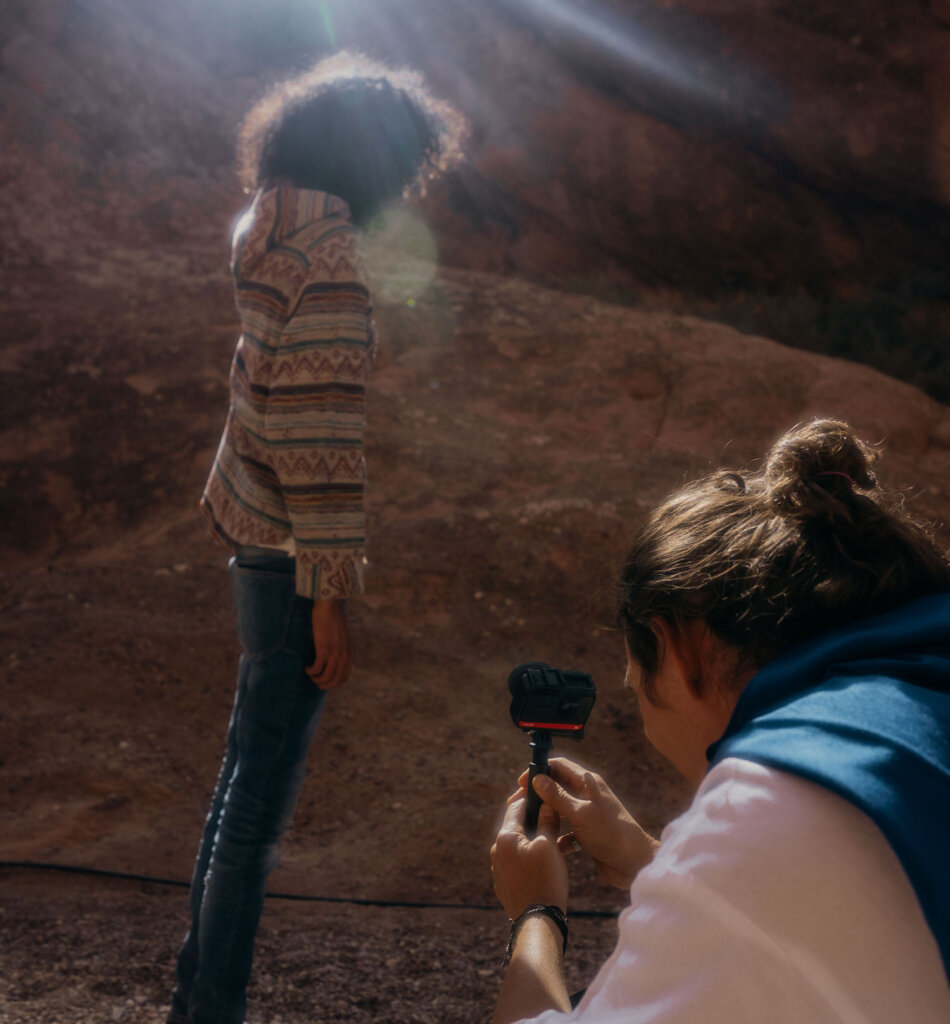
What’s your favourite project that you’ve worked on?
My favorite project that I’ve worked on was our 2019 travel film from Morocco. The project was a culmination of many serendipitous moments. For Anna and I, we met Aboubakr, featured in the film, shortly after the two of us had just met. We were in those early moments of our relationship, having only known each other for a few months, and decided to book a trip together to Morocco. What better way to really get to know someone than on a 10-day adventure travelling across a foreign country? Anna researched this incredible itinerary to take us from Fez through the Sahara Desert and finish in Marrakesh. On the third day of this trip in late December, back in 2019, Aboubakr collected us from our Riad in Fez, and together, we embarked on what became a beautiful friendship. Something had always told me we would return to Morocco to make a film with Abou. 2 years later, the opportunity arose, and that’s the film we shared.
How do you search for music on Musicbed? What are some tips that you’d give other filmmakers to search on Musicbed?
I used to search for music on Musicbed by listening to everything. I would go through every playlist and listen to every song by an artist I liked. I collected segments of songs, beats, melodies, moods, and feelings. If I liked the beats but not the lyrics, I saved the instrumental. But now, I’ve had a lot of success using the AI search bar on Musicbed. I search for a vibe and the Musicbed AI curates songs that match that sentiment. It’s satisfying, especially when I have a specific genre or song in mind that may not be copyright-free or tied up in commercial licensing. Searching for music has always been a great muse of mine. I started doing it back in high school on a site called ‘HypeM.’ I spent hours looking for new music to share in my skate videos. As a director, I’ve always seen music as a communication tool that transcends language. Music will always be an endless source of creative inspiration.
—
Explore a curated playlist of Jake’s go-to music to use in his work—all available to license only on Musicbed.















































































